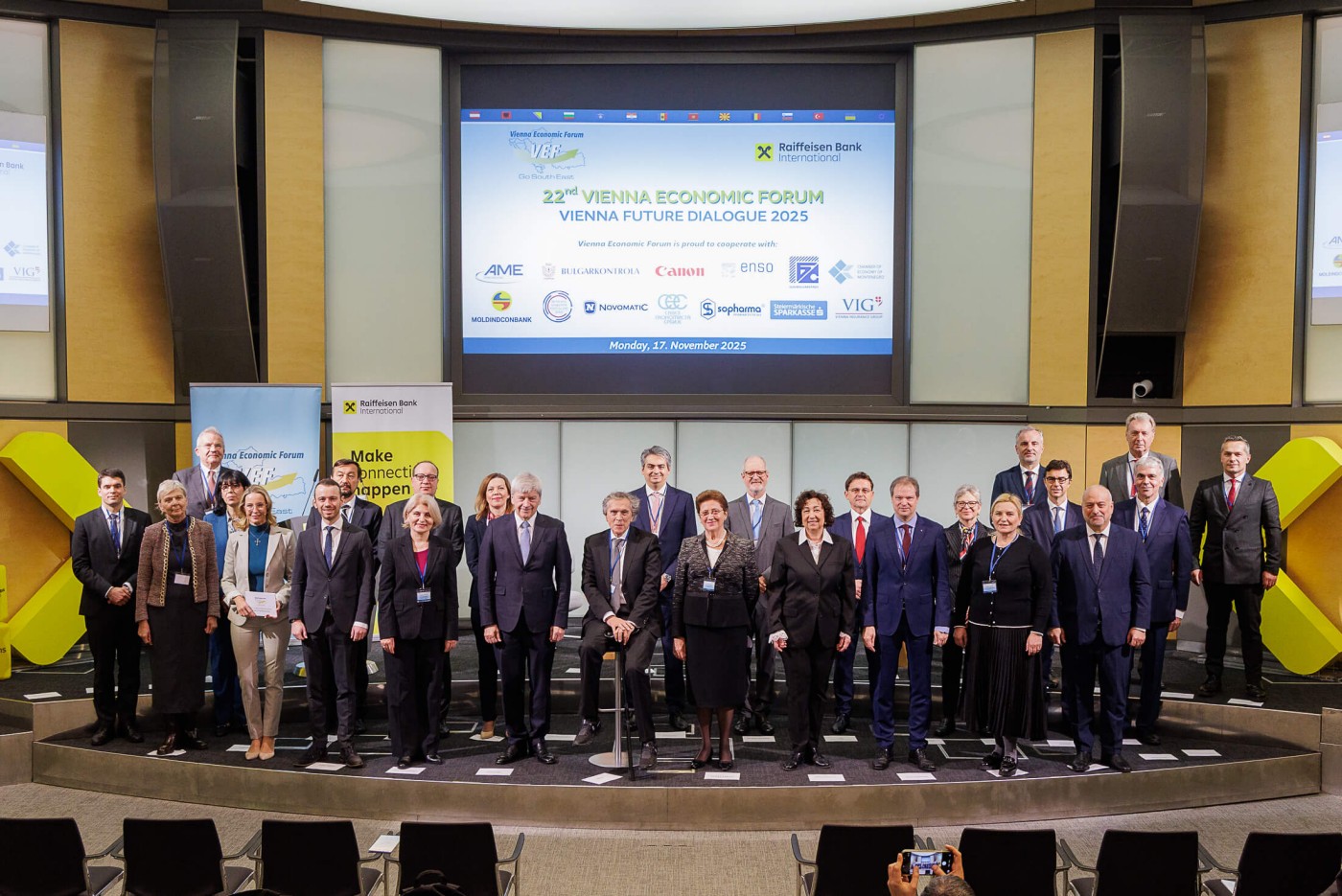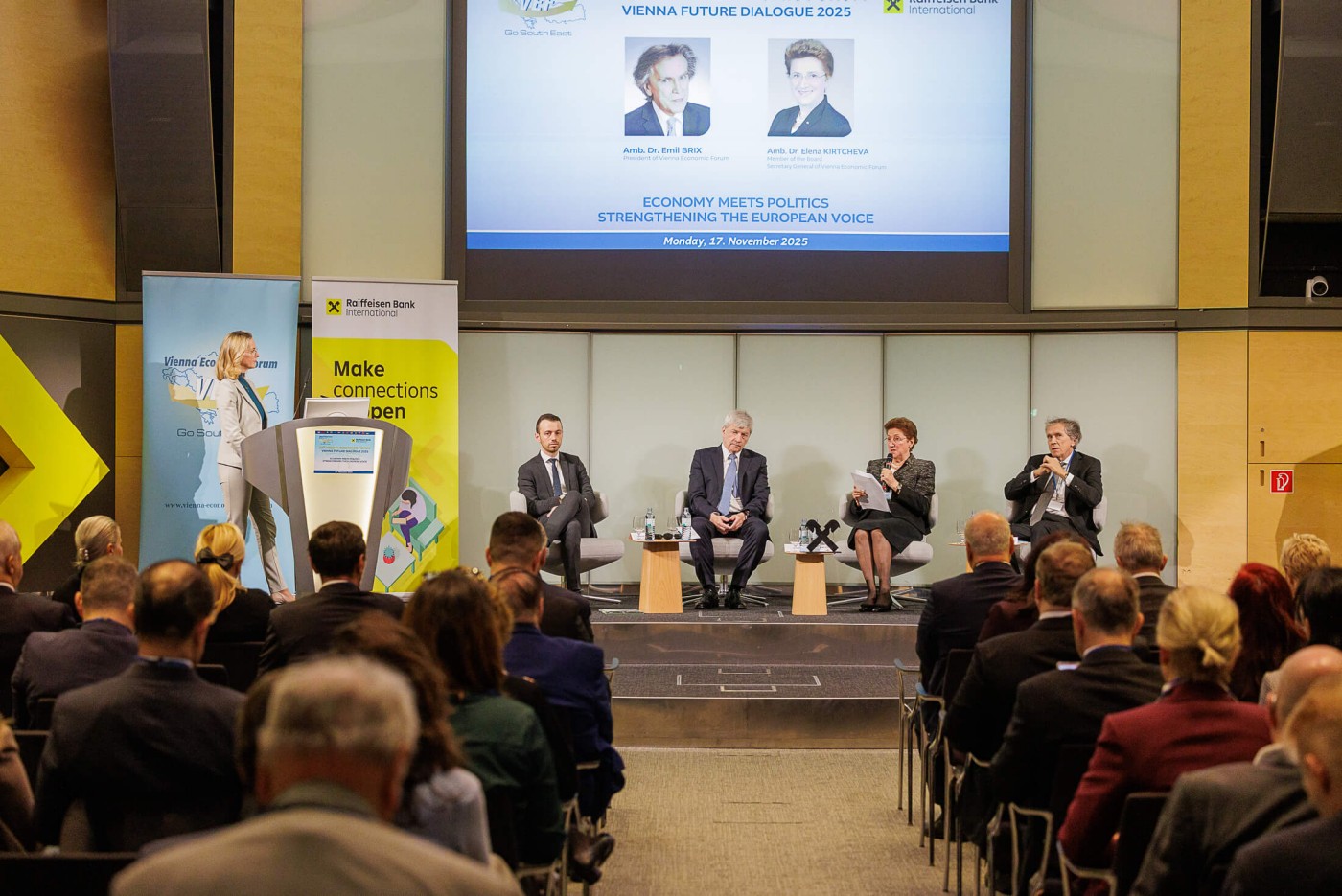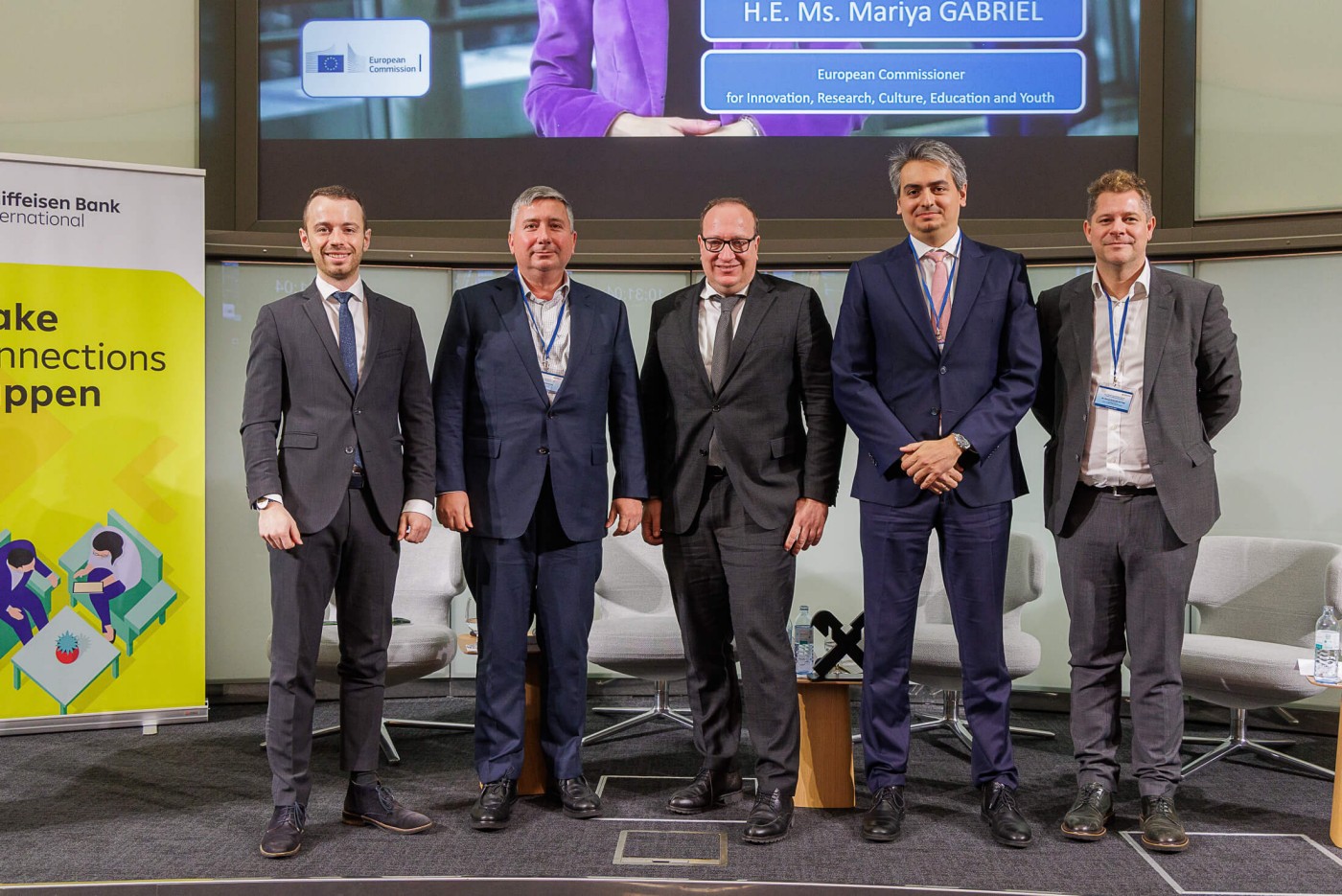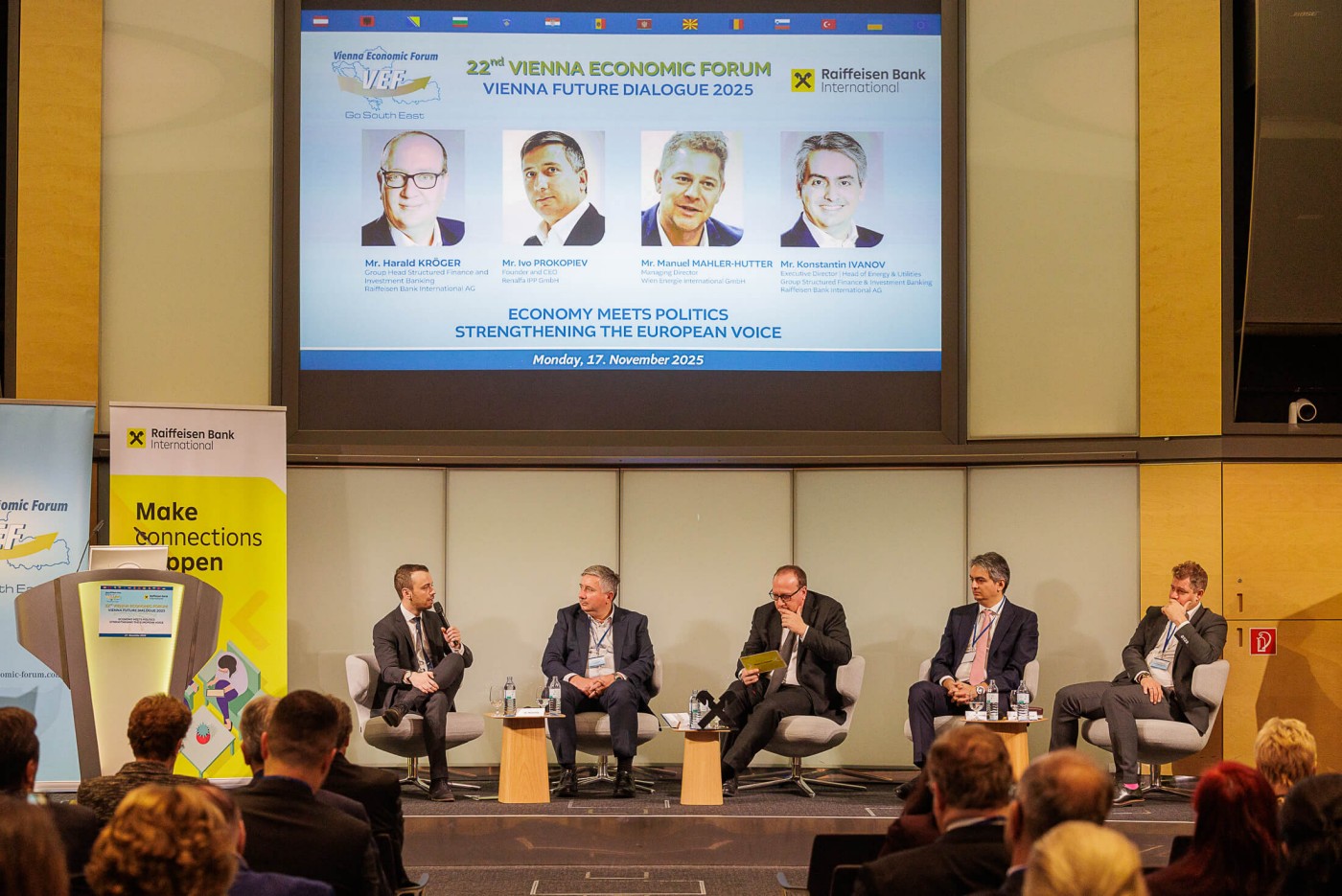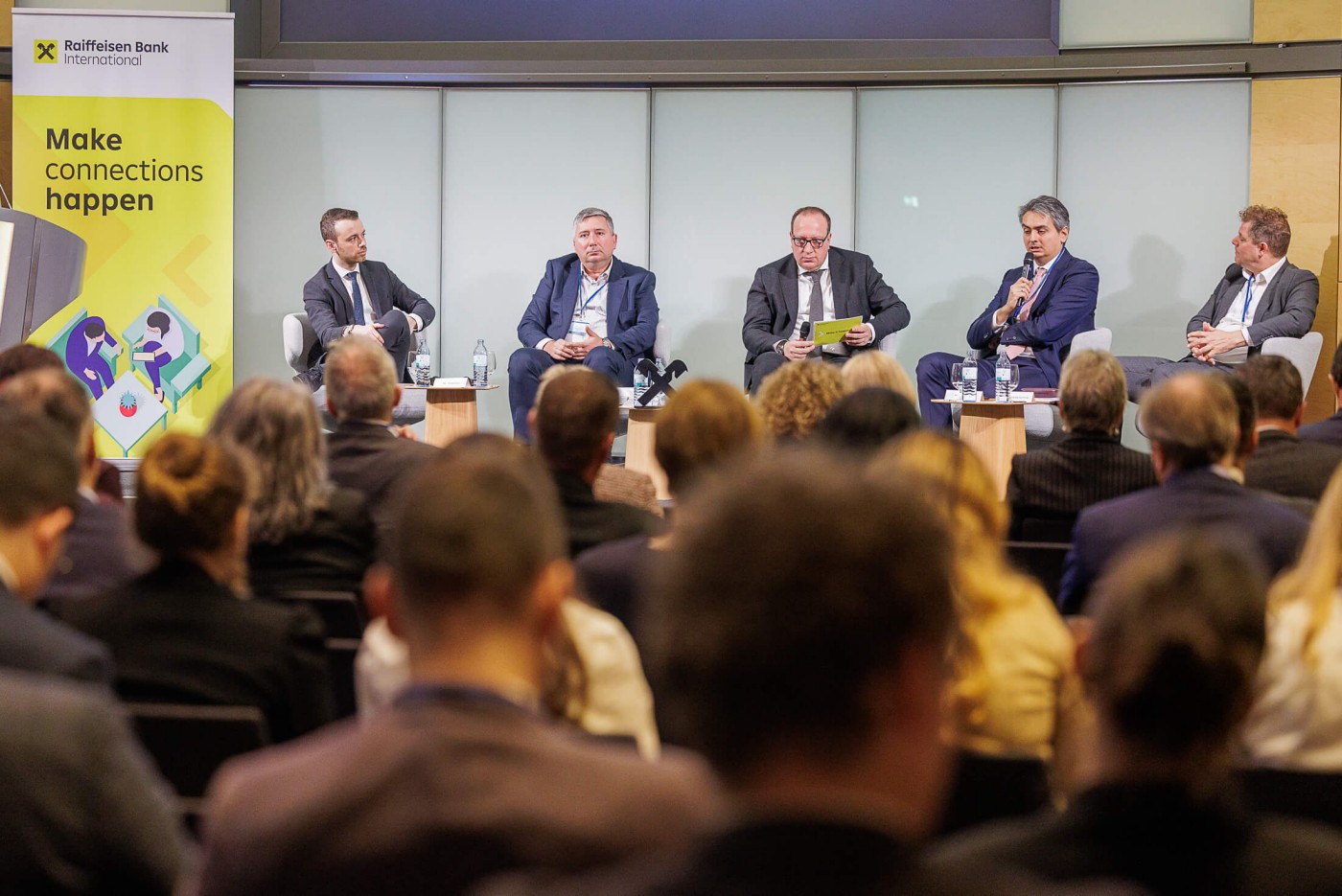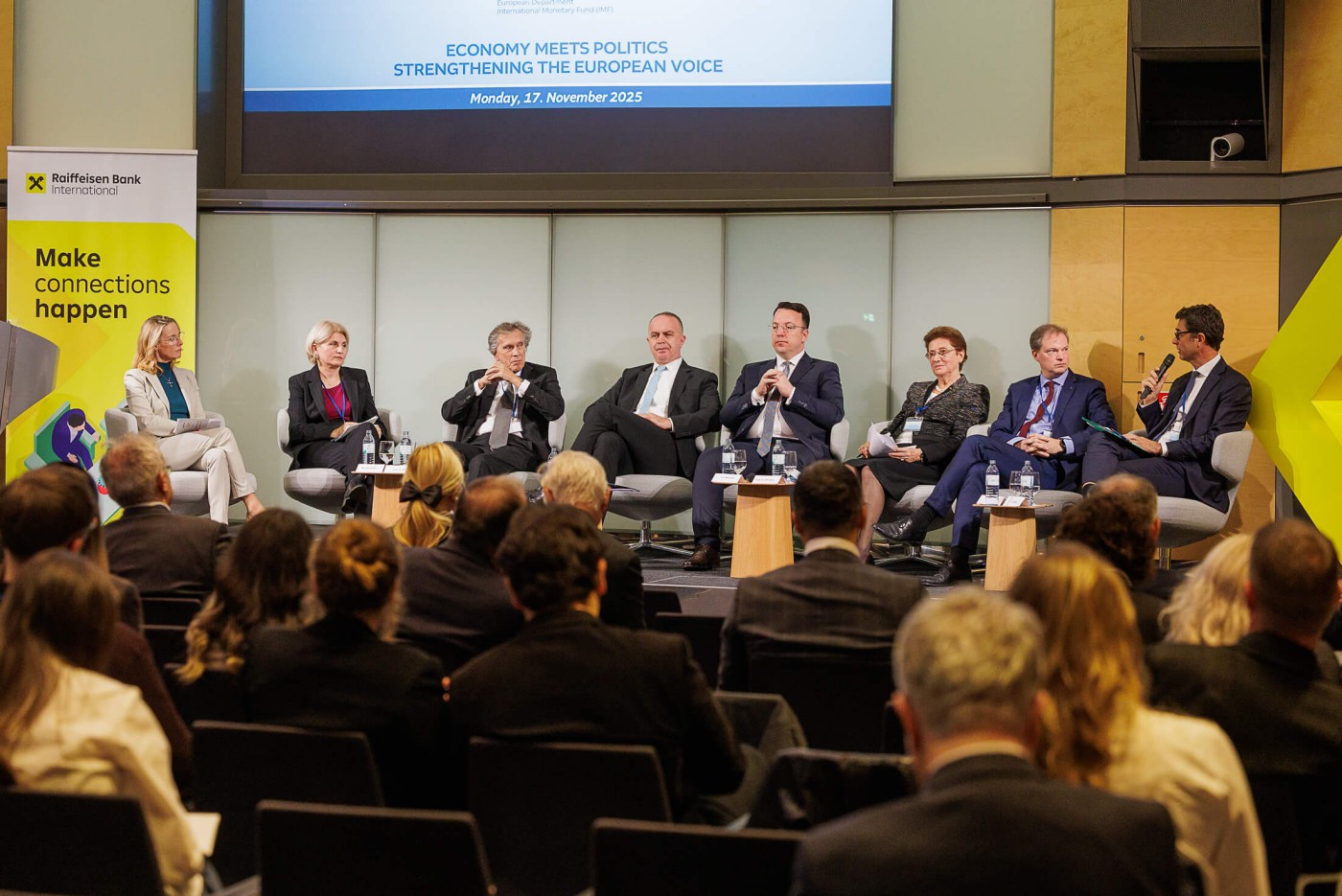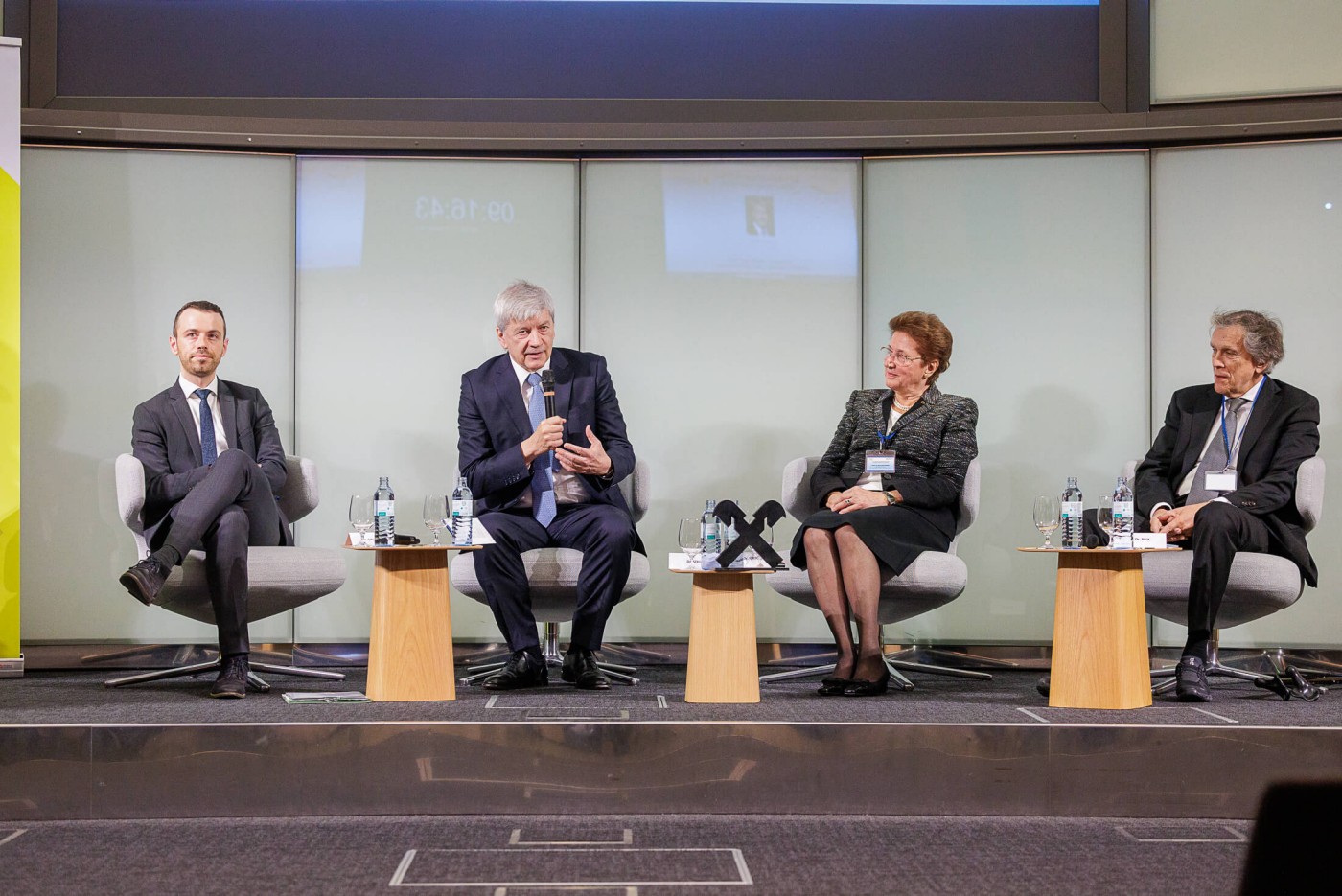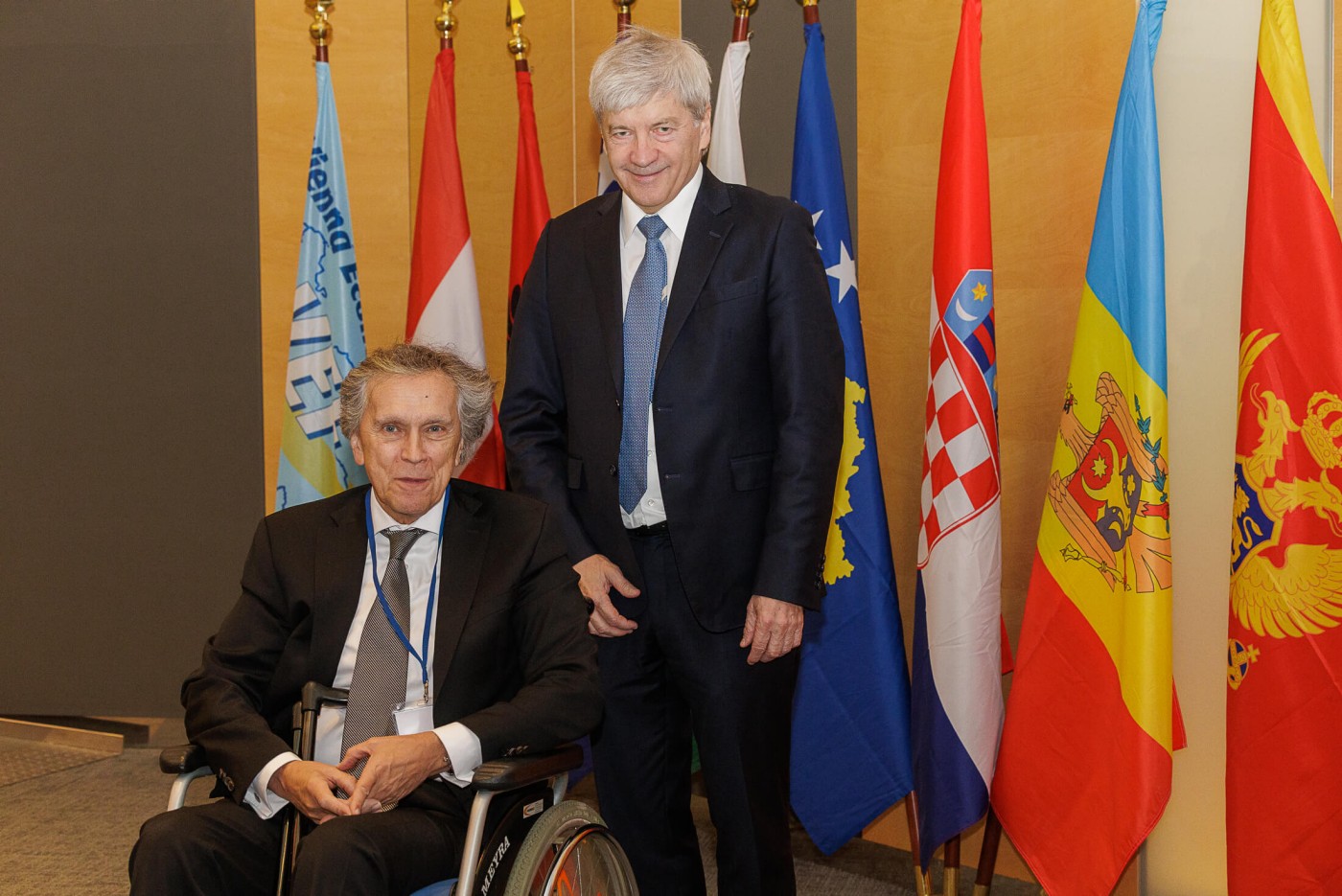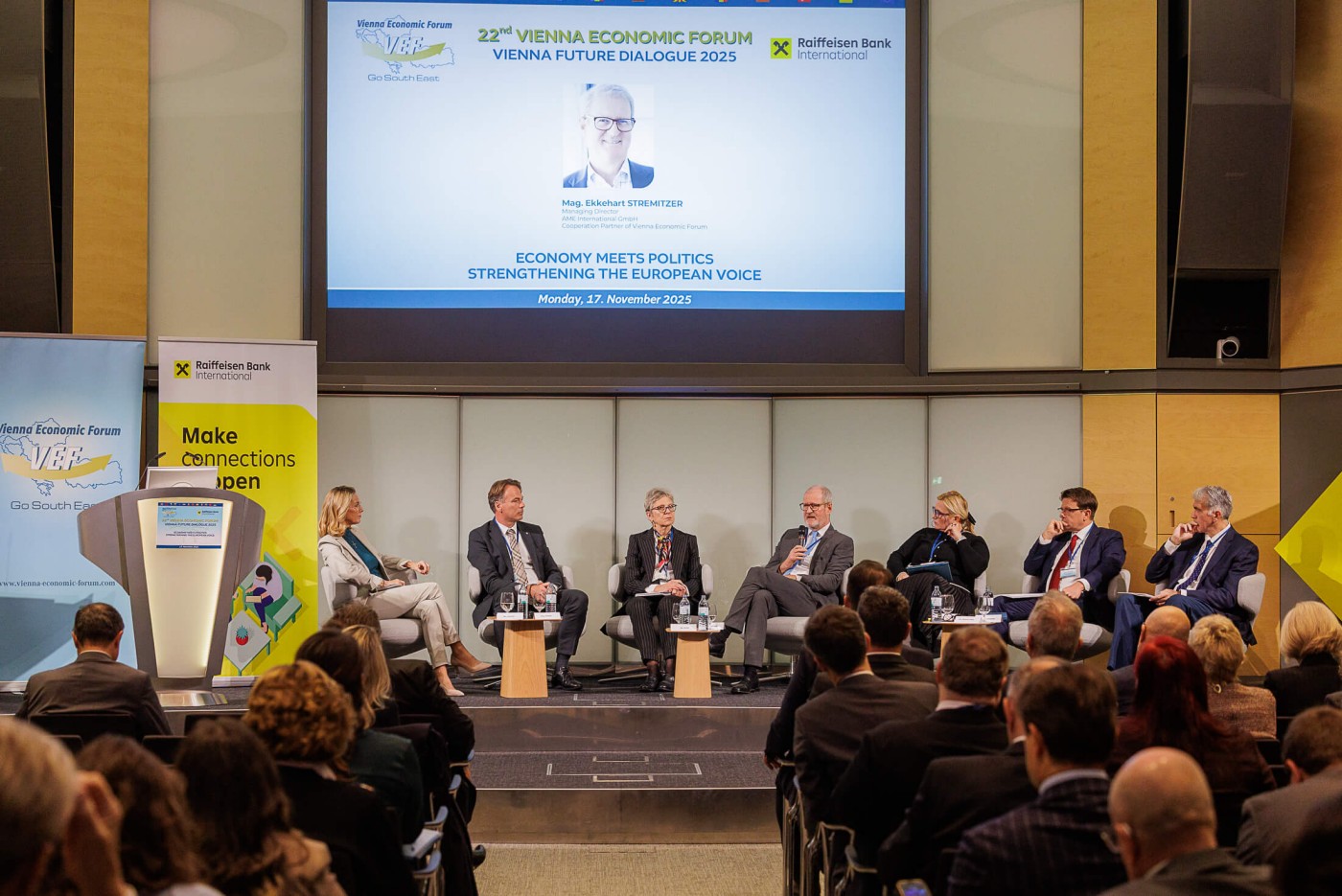
Economy meets politics—Strengthening the European Voice: This was the motto of the 22nd Vienna Economic Forum held at RBI
Leading figures from politics, industry, and finance discussed how Europe can maintain its competitiveness while promoting the transition to a secure and sustainable economic area.
RBI CEO Johann Strobl opened the event with a clear appeal that shaped the discussion: „Make connections happen“. Despite all the challenges, Strobl said, it is crucial to strengthen Europe, European culture, and the European market and to promote growth.
In the subsequent panel discussion, “Strategic Impacts on the European Energy Economy,” moderated by Harald Kröger, Group Head of Structured Finance and Investment Banking at RBI, the following experts took part in the discussion:
- Dr. Severin Gruber, Secretary-General, Federal Ministry for Economy, Energy and Tourism of Austria
- Ivo Prokopiev, CEO, Renalfa IPP GmbH
- Manuel Mahler Hutter, CEO, Wien Energie International GmbH
- Konstantin Ivanov, Global Head of Energy M&A, RBI
Europe’s Energy Equation: Security, Competitiveness, and Sustainability
Dr. Severin Gruber emphasized that Europe must maintain a balance between energy security, decarbonization, and affordability—an “energy trilemma” that is becoming even more complex due to global geopolitical shifts. Competitiveness must be at the heart of Europe's strategy, not only for economic strength but also for strategic autonomy.
A key topic of discussion in the panel was the “big red elephant in the room”: China. For Europe, the question is whether the energy transition should be accelerated with the help of Chinese technologies or whether the priority should first be to build up its own competitive renewable energy industry—while at the same time significantly reducing costs. Both paths involve opportunities and risks, and policymakers must strike the right balance.
In this context, RBI's Beijing office remains a valuable asset, providing investors, suppliers, and partners with insights into the Chinese market.
Industry Reality: Grid Expansion, Market Integration, and Regional Growth
From an operational perspective, Manuel Mahler-Hutter emphasized that “grid infrastructure and the single market are key in Europe.”
He highlighted why Wien Energie International is expanding eastward, emphasizing that their experiences in Southeast Europe have been “generally very positive.” He also underscored the strategic importance of EU enlargement in the Western Balkans for the energy system, as it enables the necessary regulatory harmonization and grid expansion to strengthen Europe's overall resilience.
According to Mahler-Hutter, energy prices remain a decisive factor for competitiveness—stable and affordable prices depend on modern networks, integrated markets, and supportive regulation.
Investment Perspective: What Drives Capital and Confidence
From an investment and transaction perspective, Konstantin Ivanov emphasized that Europe must increase the attractiveness of energy investments through predictable regulation, harmonized European rules, and subsidy schemes that provide long-term visibility.
For international investors, the message is clear: a harmonized European regulatory framework is crucial to unlock large-scale capital for renewable energies, grids, and storage technologies.
Ivanov pointed out that Romania and Bulgaria have been successfully attracting investors for many years and that this trend is set to continue. Interest is now increasingly spreading to the Western Balkans—including Serbia and Albania—supported by improving political stability and clearer energy strategies.
Future data centers in particular will significantly reshape electricity demand, especially in Poland and Romania. This should be taken into account in future planning.
Private Sector Leadership: Renewables, Storage, and New Energy Economics
From a entrepreneurial perspective, Ivo Prokopiev emphasized Europe's strategic direction: “Renewable energy is the only sustainable, economical, and long-term available form of energy for Europe.”
He emphasized that modern storage solutions make energy a tradable product - not just a raw material. This shift will fundamentally transform market design, pricing structures, and the balance between local to imported energy.
Prokopiev reiterated that the energy transition requires a coordinated regulatory environment, modernized grids, and faster approval procedures—supported by both national governments and EU institutions.
Europe’s Decisive Decade
Across all perspectives, one central theme ran through the discussion: connectivity—of markets, of infrastructure, and of political direction—is the foundation of Europe's energy future.
If Europe can align regulation, investment, and innovation, the region can strengthen its competitiveness, expand its strategic autonomy, and build a resilient energy system for decades to come.
